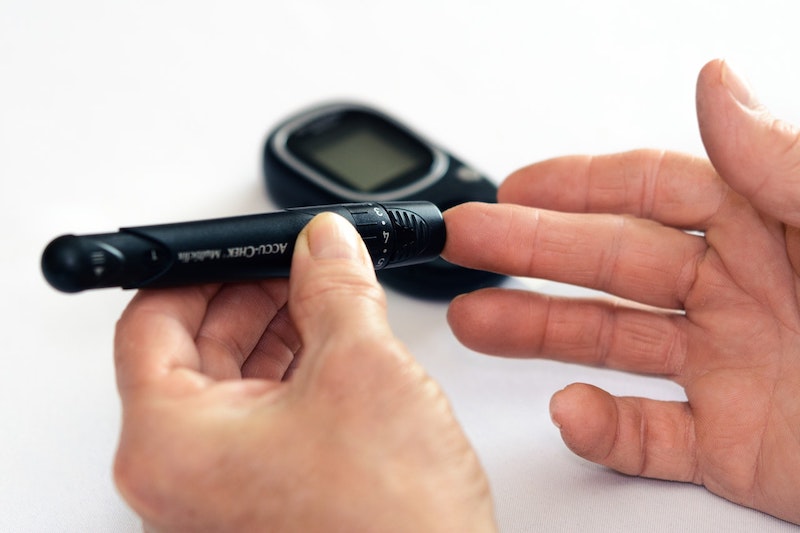Diabetics who choose to fast during Ramadan need to carefully monitor their blood glucose levels since these will fluctuate as the body enters into a fasting state, and after breaking the fast, according to a diabetes expert at Imperial College London Diabetes Centre (ICLDC).
“Your body enters into a fasting state around eight hours after the last meal, and it will initially use stored sources of glucose, which can increase the risk of hypoglycemia (low blood sugar) on some medication and/or insulin,” says Dr. Farhana Bin Lootah Consultant, Internal Medicine at ICLDC.
“In addition, blood glucose levels tend to rise after Iftar due to the large meals usually served,” she adds.
Diabetics should also be sure to drink plenty of water during non-fasting hours to avoid the increased risk of dehydration.
– Dr. Farhana Bin Lootah Consultant, Internal Medicine at ICLDC

In addition to consulting their doctor or medical team prior to and during Ramadan for advice, it is essential that patients self-monitor their blood sugar throughout the month. “Self-monitoring of blood glucose levels is essential and approved both in religious and medical contexts,” adds Dr. Farhana.
Self-monitoring of blood glucose levels is essential and approved both in religious and medical contexts. “Religious scholars agree that taking blood samples either by finger-pricking or by a needle from arm veins to check blood-sugar levels does not invalidate the fast, and doctors agree it is important to perform the tests as they help patients fast safely,” says Dr. Farhana.
READ ALSO: Diabetics Vulnerable to Sudden Neovascular Glaucoma Attack
Suggested timings for blood glucose levels monitoring for type 1 and 2 diabetics
Dr. Farhana explains that the recommended frequency of blood tests depends on the level of diabetes control and which form of diabetes is present. In general terms, though, a minimum of one to two tests per day is recommended for people with type 2 diabetes, and a minimum of two to three tests for type 1.
- Before suhoor: blood glucose levels target should be 120-140mg/dl
- Mid-morning: blood glucose targets should be 140-180mg/dl
- Midday: blood glucose targets should be 120-180mg/dl
- Before iftar: blood glucose targets should not be below 70mg/dl
- 2 hours after iftar: blood glucose targets should not be above 180mg/dl
- At any time when there are symptoms suggestive of low blood sugar or high blood sugar or when feeling unwell
Results indicating the fast needs to be broken:
A diabetic should be prepared to immediately break their fast if they have any of the following signs:
- Blood sugar level of less than 70 mg/dl
- Blood sugar level of more than 300 mg/dl
- Symptoms of low blood sugar (Feeling dizzy, sweaty or shaky, blurred vision, confusion or inability to think clearly, loss of consciousness)
- Symptoms of acute illness, e.g., vomiting or diarrhea
“Diabetics should always work with their medical team of doctors and experts.
With appropriate planning ahead, and enlisting the help of your medical team, you will be far better equipped to handle the unique challenges diabetics face during Ramadan,” Dr. Farhana advises.

